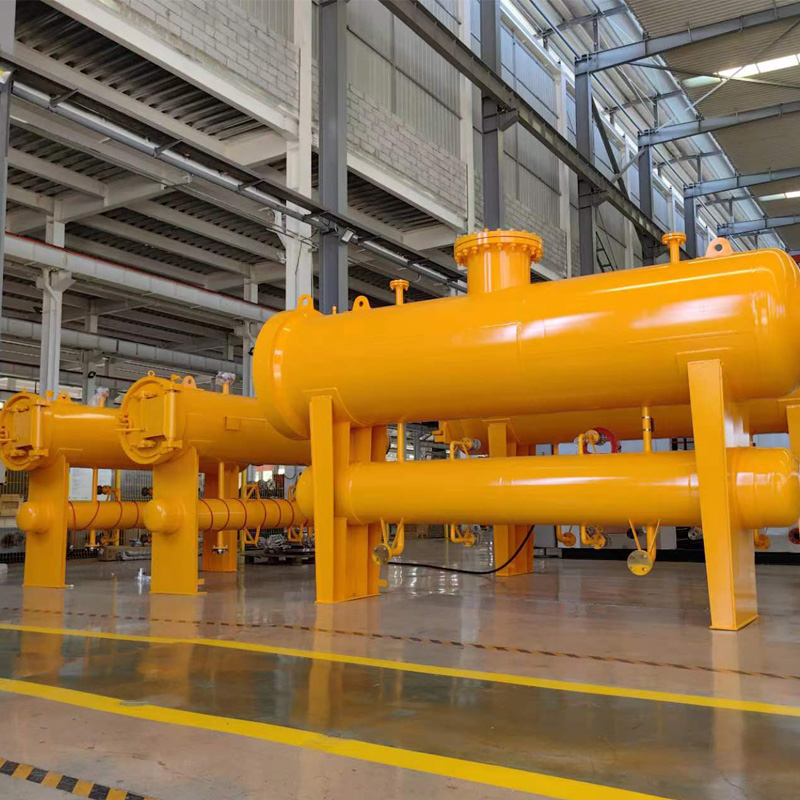
Nov . 15, 2024 03:44
Back to list
pressure pipe
Understanding Pressure Pipes Essential Components in Various Industries
Pressure pipes are critical components in various industries, including water supply, oil and gas, and chemical processing. These pipes are designed to withstand high pressure and are made from materials that can endure the mechanical stresses and corrosive environments often encountered in these applications. The selection, installation, and maintenance of pressure pipes are essential considerations for ensuring system reliability and efficiency. This article will explore the importance, types, and considerations related to pressure pipes.
Importance of Pressure Pipes
Pressure pipes serve an integral role in the transportation of fluids under high pressure. Whether it’s carrying potable water, natural gas, or chemicals, the integrity of these pipes is paramount. A failure in a pressure pipe can lead to significant operational disruptions, financial losses, and environmental hazards. For instance, a burst pipe in a water supply system can lead to extensive flooding, while a failure in an oil pipeline can cause catastrophic spills, resulting in severe ecological damage.
Additionally, industries rely on pressure pipes to maintain the desired flow rates and pressure levels within their systems. This is crucial not only for operational efficiency but also for the safety of personnel and equipment. The design of these pipelines takes into account the maximum allowable pressure, the type of fluid being transported, and the external environmental conditions to ensure safe and effective operation.
Types of Pressure Pipes
Pressure pipes come in various materials, including steel, PVC (Polyvinyl Chloride), HDPE (High-Density Polyethylene), and ductile iron. The choice of material often depends on the application, with each material offering unique benefits
1. Steel Pipes Known for their high strength and durability, steel pipes are often used in oil and gas industries. They can withstand high pressures and are resistant to impact and punctures. However, they are susceptible to corrosion, necessitating protective coatings or cathodic protection systems.
2. PVC Pipes Lightweight and corrosion-resistant, PVC pipes are widely used for water distribution systems. They are easy to install and maintain, making them a popular choice for residential and commercial applications. However, they may not be suitable for very high-pressure applications.
3. HDPE Pipes These pipes are known for their flexibility and resistance to chemicals and UV radiation. They are commonly used in water and wastewater systems, as well as in mining applications. HDPE pipes are engineered to handle high pressures while maintaining structural integrity.
pressure pipe

4. Ductile Iron Pipes Combining strength and flexibility, ductile iron pipes are used in water and sewage systems. They are highly resistant to corrosion when properly coated, making them suitable for underground applications.
Considerations in Selecting Pressure Pipes
When selecting pressure pipes, various factors must be considered to ensure optimal performance
1. Pressure Rating Each pipe material has its respective pressure rating, indicating the maximum pressure it can handle safely. It is crucial to choose pipes that exceed the expected operating pressure to maintain safety margins.
2. Temperature Resistance The operating temperature influences the choice of material. Pipes exposed to higher temperatures may require special materials or construction techniques to prevent failure.
3. Chemical Compatibility The fluid being transported can interact with pipe materials, leading to degradation or failure. Understanding the chemical properties of the fluid is essential for proper material selection.
4. Installation and Maintenance Proper installation techniques and regular maintenance can significantly extend the lifespan of pressure pipes. Inspections for corrosion, leaks, and mechanical integrity should be conducted periodically.
Conclusion
Pressure pipes are vital for the safe and efficient transportation of fluids in various industries. Understanding their types, importance, and selection criteria can help engineers and decision-makers ensure reliable operations. As infrastructure continues to evolve, advancements in materials and technologies will further enhance the performance and sustainability of pressure piping systems, making them even more crucial for modern society. Investing in the right types of pressure pipes and adhering to best practices in their installation and maintenance will safeguard not only operations but also the environment and public safety.
Next:
Latest news
-
Safety Valve Spring-Loaded Design Overpressure ProtectionNewsJul.25,2025
-
Precision Voltage Regulator AC5 Accuracy Grade PerformanceNewsJul.25,2025
-
Natural Gas Pressure Regulating Skid Industrial Pipeline ApplicationsNewsJul.25,2025
-
Natural Gas Filter Stainless Steel Mesh Element DesignNewsJul.25,2025
-
Gas Pressure Regulator Valve Direct-Acting Spring-Loaded DesignNewsJul.25,2025
-
Decompression Equipment Multi-Stage Heat Exchange System DesignNewsJul.25,2025

